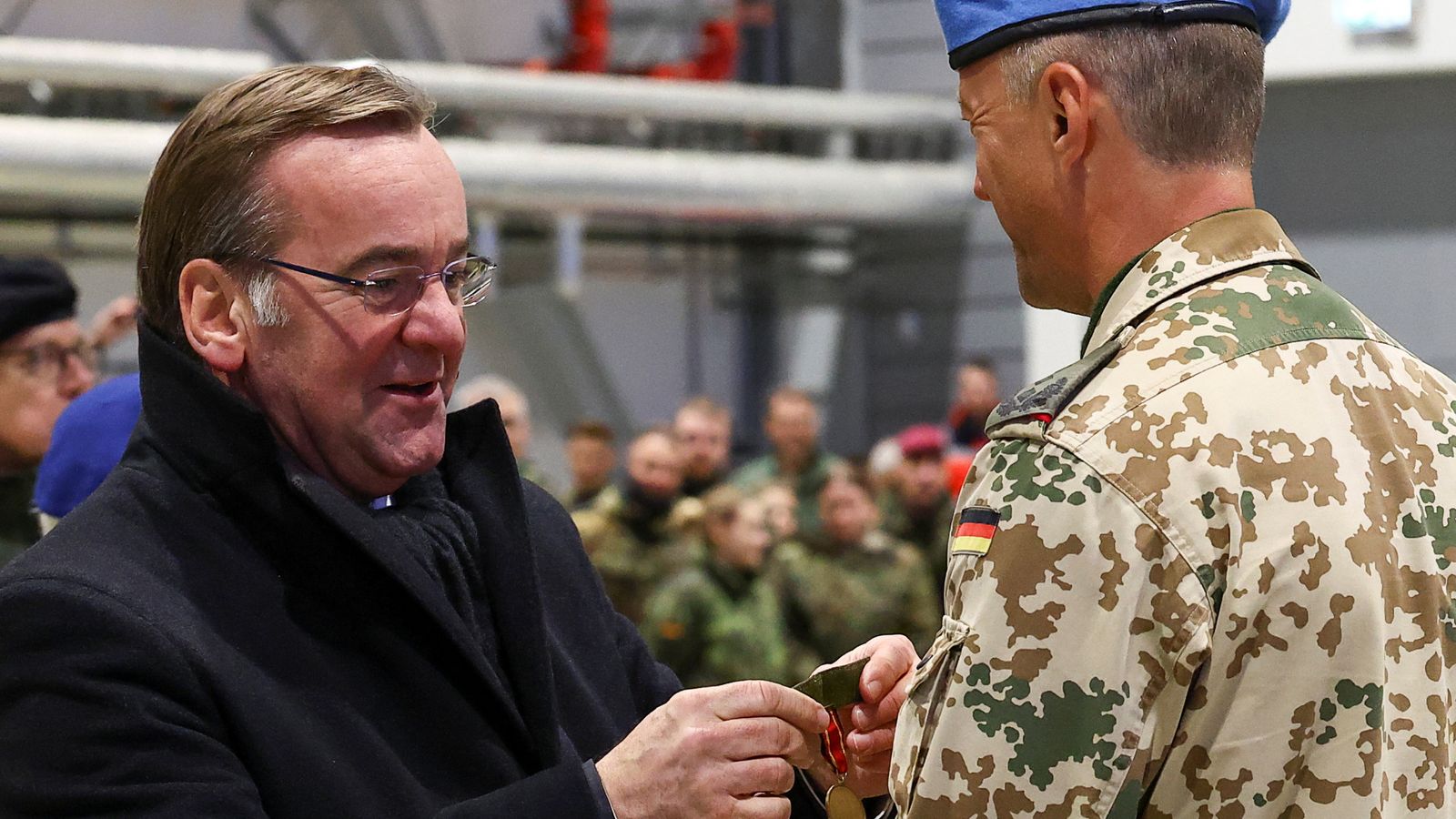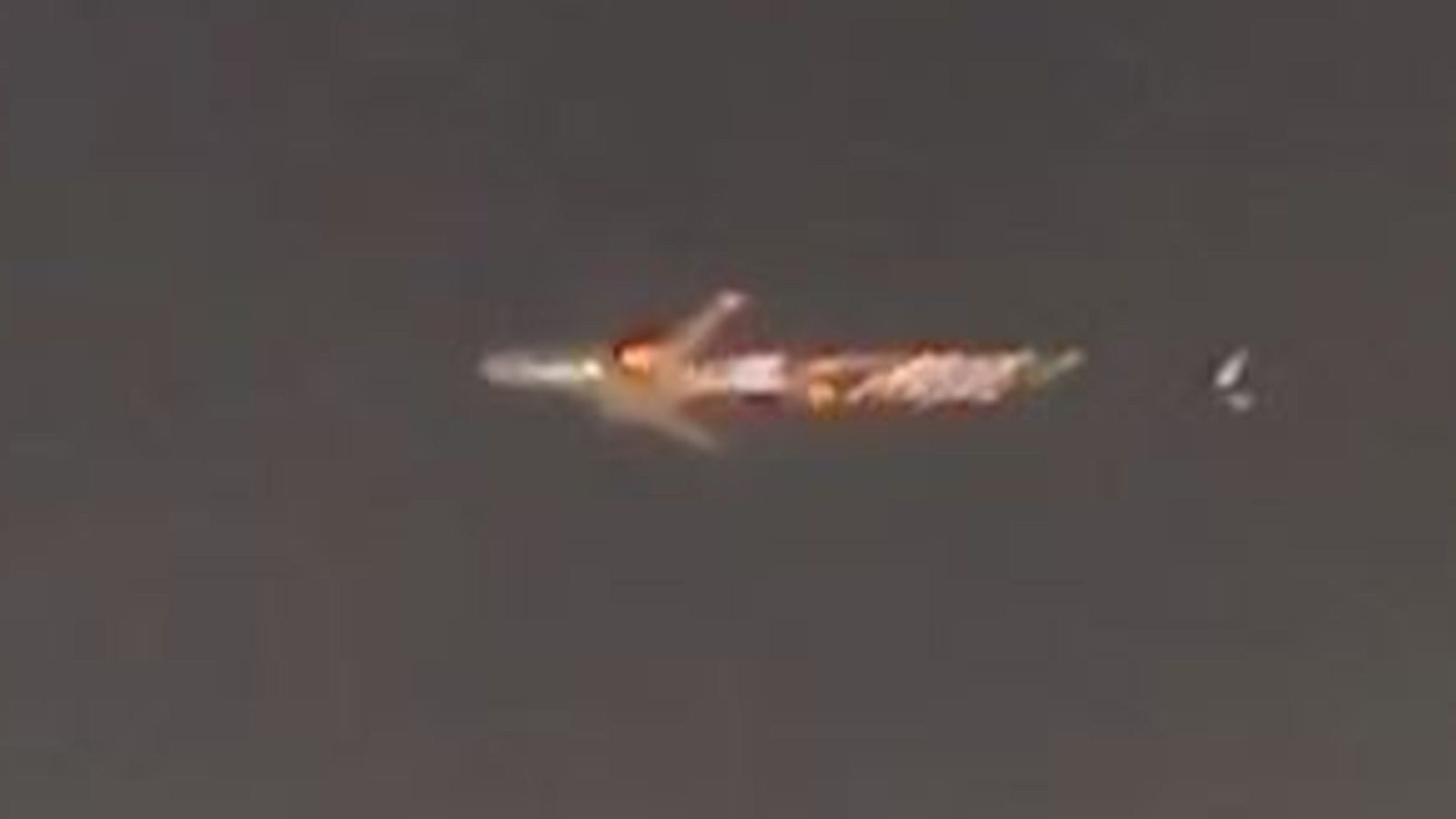Russia could attack NATO within five years, the German defence minister has warned, as the alliance prepares to launch its biggest military exercises in decades amid increasing global uncertainty.
Boris Pistorius told German news outlet, Der Tagesspiegel: “Our experts expect a period of five to eight years in which this could be possible.
“We hear threats from the Kremlin almost every day, so we have to take into account that [Russian President] Vladimir Putin, might even attack a NATO country one day.”
‘Prepare for war, NATO chief warns’: Ukraine latest
Please use Chrome browser for a more accessible video player
While he said it was unlikely “for now”, Mr Pistorius warned that “we are dealing with a military threat situation in Europe that has not existed for 30 years”.
“We see it through Russia’s attack on Ukraine. We hear threats from the Kremlin almost every day – most recently against our friends in the Baltics.”
His warning comes on the day the chairman of the NATO military committee urged people to be ready for a conflict that would require a significant change to their lives.
Russia could rip up Barents Sea agreement with UK – posing threat to cod and haddock supplies for fish and chips
Ukraine: Volodymyr Zelenskyy brushes off funding fears if Donald Trump wins US presidential election
Two high-value Russian planes ‘shot down’, Ukraine claims
Admiral Rob Bauer said: “We have to realise it’s not a given that we are in peace. And that’s why we [NATO forces] are preparing for a conflict with Russia.
“But the discussion is much wider. It is also the industrial base and also the people that have to understand they play a role.”
Please use Chrome browser for a more accessible video player
Around 90,000 NATO personnel, 20,000 from the UK, will take part in months of drills, beginning next week, the alliance’s biggest since the Cold War, which leaders hope will show the organisation can defend all of its territory up to its border with Russia.
The exercises – christened Steadfast Defender 24 – “will show that Nato can conduct and sustain complex multi-domain operations over several months, across thousands of kilometres, from the High North to Central and Eastern Europe, and in any condition,” the 31-nation body said.
Troops will be moving to and through Europe until the end of May in what NATO describes as “a simulated emerging conflict scenario with a near-peer adversary”.
Read more:
Shapps urges greater NATO defence spending
Mexican marines capture cartel boss
North Korea claims nuclear drone test
NATO now sees its chief adversaries as Russia and terrorist organisations.
US General Christopher Cavoli, said the exercises, which coincide with Russia getting bogged down in Ukraine, will demonstrate “our unity, our strength, and our determination to protect each other”.
While NATO isn’t directly involved in the conflict, it is supplying Ukraine with non-lethal support, and many member countries have been sending weapons and ammunition and giving military training.
Please use Chrome browser for a more accessible video player
NATO had already begun building up security on its eastern flank with Russia and Ukraine in the months before Vladimir Putin ordered troops into Ukraine in February 2022.










